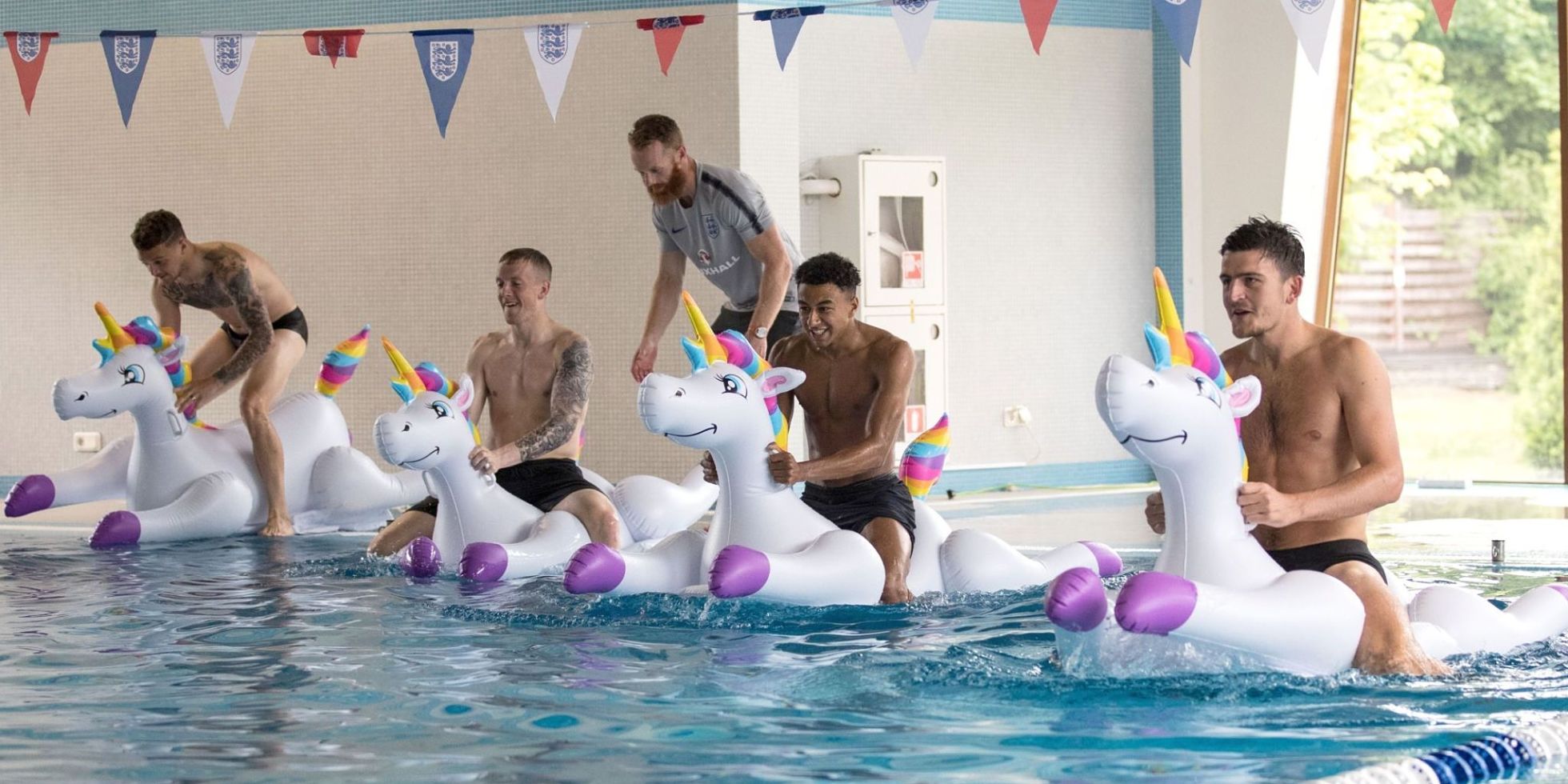A decade in review*

*For Employee Engagement. Because that’s what I do.
I love this time of year. Love it. And especially at the end of a decade. All the lists of best books and best films of the decade. The best photographs, the most influential people. The tech that has changed our lives. The words we have embraced, and those we’ve abandoned.
I joined The Team in 2009. So, after a decade working in (what was) internal communications and (is increasingly) employee engagement and (becoming even more) employee experience, here is my take on the best and worst of the last decade in communicating with employees.
I’ve also taken a stab at some predictions. Because you’ll love to look back at those in a decade and laugh at how wrong I was. Unless the AI revolution (AKA the apocalypse) has happened. And then none of us will be here, because we will have been overwhelmed by masses of tiny grey robots… (Incidentally, Tim Urban at waitbutwhy.com is one of my standout blog authors of the decade).
But, enough of the apocalyptic musing. On to the best of the 2010s.
Best book: Who moved my cheese? Dr Spencer Johnson
Actually published in 1998 but I love it so much I’m saying sod it. It was the book of the decade. Again.
It’s a brilliantly told story about change. Coping with change and taking control of your own destiny. And, for employees, that’s been one of the biggest shifts this decade. A shift from learning and development that your employer ‘gives access to’, to an expectation that you will find and do the development you want and need to fulfil your career aspirations. And that isn’t necessarily climbing the career ‘ladder’. The ladder is over. It’s all about the portfolio career, now.
Best film
Ooof. This was a tricky one, but I absolutely loved this cracker of a recruitment film for Sodastream. It’s unexpectedly joyful, irreverent and it’s crystal clear. You know exactly who they are, why you should work there, and what they are looking for. It’s a masterclass.
And secondly, the Heineken Go Places online interview launched in 2016 and was refreshed in February 2019. It is a brilliantly executed take on a personality profiler and done with incredible panache.
Best (well, worst, but most instructive) photograph
In April 2017, on an overbooked United Airlines flight from Chicago to Louisville, Security Officers dragged Dr David Dao off the flight. Video footage of the forcible removal went viral, with Dr Dao ending up with a broken nose, two lost teeth, and ongoing health issues.
Despite the swift and widespread condemnation of the removal, in a tone-deaf response, the CEO of United sent an email to employees applauding the way they had followed the process, and labelled Dr Dao as belligerent and disruptive.
Once United finally understood the impact of the footage, they issued an apology for the way the situation had been handled and then settled out of court with Dr Dao.
Passengers on the plane complained about the tone of the employee who made the announcement that the plane wouldn’t leave until four passengers got off. (They were paying customers, already sitting in a seat on the plane!) The processes the employees followed were clearly not fit for purpose and the attitude was clearly not working for customers. This incident demonstrated a worrying disregard for paying customers.
In the aftermath, processes were changed by United to allow employees to offer greater compensation to passengers, but that customer disregard? That will take more than a shift in process to address.
Most influential people
Not strictly speaking a person, but the UK Government’s Behavioural Insights Team (also known as ‘The Nudge Unit’) has been quietly developing evidence-backed, behavioural insight-driven communication campaigns since it was established in 2010. Although the work is focused on the health, wealth and happiness of UK citizens, the underlying principles and frameworks the team has developed are hugely instructive for communicators including EAST (easy, attractive, social and timely) and TEST (target, explore, solution and trial).
Behavioural economics is fascinating, and these tools bring rigour to what could otherwise be a baffling landscape of irrational people making irrational decisions and not really understanding why.
The other influential person is Gareth Southgate, who made leadership look easy! Photos of ‘our boys’ messing around on inflatable unicorns post-match was a particular highlight of 2018 for me (ahem). Gareth led a young, inexperienced England football team to unimagined glory (knocked out in the semi-finals of the 2018 World Cup; unimaginable!) and, along the way, they looked like a team that was having the time of their lives, liked and respected their manager, their opposition, themselves and each other. How did he do it? He had a vision, some simple rules and he followed them consistently. He then made sure that the entire team knew what the vision was, what the rules were, and that they would follow them consistently. It was the very definition of brilliant employee engagement – and it paid off.
Gareth also gave me food for thought with this anecdote, which is almost obscene with the glory of it: “I was listening to the story of a company that went to get approval for a new drug. They had a celebratory dinner the night before the final interview. There was nothing more they could have done, regardless of what the outcome was. That was someone else’s job.”
The tech that changed employee lives
For vast swathes of employees, where they do their job is non-negotiable. People in retail and manufacturing environments, hospitals, schools, contact centres, on the road, engineers in customers’ homes and on rigs. For these people, technology will have undoubtedly made an impact. It may have made their working lives easier. They may feel more connected to colleagues via employee apps and messaging services. But for employees who can do their role anywhere, tech totally changed their lives in the 2010s.
I started out with my first fumbling attempts to use an iPhone in 2009 (to my great shame, I gave my first one back because I couldn’t work the phone function ♀️). But by the close of the decade, people untethered to location can work anywhere and everywhere, because, you know, the tech just works. You can get your files, do conference calls, emails, documents, slides, collaborate on shared documents, messaging. It is a miracle of slick and it’s just brilliant.
For these employees, this tech gives huge flexibility and allows them to be there for pets, kids, parents, hobbies, and life. By the end of the decade, over 70% of office-based professionals worked from home at least one day a week. The flip side is that the lines between work and home have become blurred if we can’t resist looking at the irresistible black mirror. I think that’s a price worth paying. I have raised two children this decade, my first was born in 2008 and my second in 2012, and I’ve had a significantly better time of it working and mothering this decade than my colleagues raising theirs the decade before. And it’s a different game altogether than when my working mother raised me and my three siblings in the 70s and 80s. I am eternally grateful. Of course, it is also down to my employer (thanks, Cliff!), but it’s the tech that has enabled it.
The tech that changed employee lives – part 2
The second facet of tech to change employee lives was the transparency and views into organisations enabled by sites such as Glassdoor and LinkedIn. Although Glassdoor is something of a blunt instrument – as with any review suite, people rarely pitch up to tell you that their experience was “yeah, fine” – it is a useful way of understanding, broadly, who is getting employee engagement right, who is getting it wrong, and why. It demonstrates that getting the big stuff right matters, but for individuals at work, life is in the details – their manager, their opportunities, the feedback they get.
The words we have embraced
Portfolio career – an increasing number of people making money doing loads of different things for different employers, and for themselves.
Co-create – horrible words, but I love the intent. Increasingly we work with our clients in sprints and labs to get to answers quickly and getting to know each other really well (being in a room together for three days does that). It’s my favourite way to work.
Diversity – in the truest sense of the word; having people from a wide range of backgrounds, experiences and educational paths to avoid getting the same answers to the same questions as every other organisation in your sector.
The words I wish we hadn’t embraced
“Win hearts and minds” – just no. It’s the workplace equivalent of “Live. Love. Laugh.”
“Across the piece” – what even IS this?
Going forward – my colleague Jess hates this one, she describes it as “a polite way of saying let’s draw a line under the shitshow that just happened”. Lol.
Millennials – why? Why are we so keen to categorise an entire generation? Millennials are simply ‘a non-homogenous group of people who happen to be born during a particular time frame’. We have no truck with talking about ‘women’ as a homogenous group, so why are we determined to do it with entire generations?
What’s coming up this year and beyond?
The brand purpose backlash
It’s started, and although there is always someone willing to tear down an idea or a trend for the fun of it, we have often talked about the conflation of brand purpose and social purpose. Not every business wants or needs a social purpose. And too many ‘brand purposes’ that are straying into social purpose territory are destined to fail. A social purpose only works when it is driven from the top, and when there is real belief that it is the right thing to do, not simply because it makes commercial sense.
Being less coy about salary
This is more of a personal wish rather than a trend, but I wish we could be more Swedish in our approach to salary. It would land a (hopefully fatal) blow on the gender pay gap and would empower people with the information they need to understand their worth in a rapidly changing marketplace where demand for skills is constantly changing.
A return to print
Not all the time, and not for everything. But when it matters. Like when you join an organisation.
The apocalypse
Just kidding. I hope.





